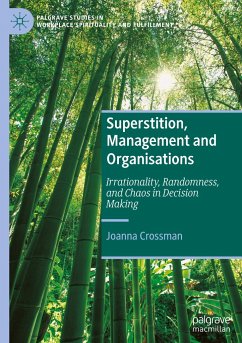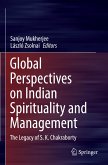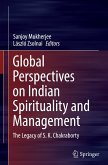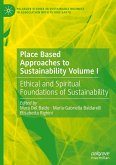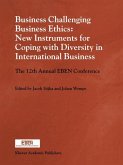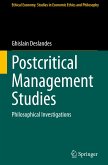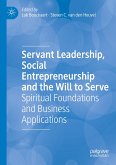This book addresses how people and organisations sometimes respond to uncertainty in making decisions. Those decisions are rooted in beliefs and behaviours that are not always rational, especially in response to perceived randomness, chaos and unexpected circumstances. The author uses a transdisciplinary approach to the study of superstition in the context of business and management, taking care to acknowledge that what is regarded as superstition to one person may well be constructed as a spiritual belief by another. Respect and sensitivity in explicating individual and social constructions of spirituality is a core value in structuring the narrative of the text.
The work also explores the interwoven relationships amongst superstition, religion, spirituality and empiricism and how cultural, political, economic and environmental factors are likely to influence organisations and those who are employed by them. Further, it examines the influence of beliefs related to topics such as feng shui, astrology, phrenology and the I Ching in recruitment.
This comprehensive treatment of the role of superstition in business will advance the scholarly conversation on uncertainty in decision making. It points to the power of belief that defies empirical validation and how it can be used in a variety of contexts, such as the marketing of products and images to manipulate unwary consumers or inhibit the implementation of health advice in times of COVID-19.
The work also explores the interwoven relationships amongst superstition, religion, spirituality and empiricism and how cultural, political, economic and environmental factors are likely to influence organisations and those who are employed by them. Further, it examines the influence of beliefs related to topics such as feng shui, astrology, phrenology and the I Ching in recruitment.
This comprehensive treatment of the role of superstition in business will advance the scholarly conversation on uncertainty in decision making. It points to the power of belief that defies empirical validation and how it can be used in a variety of contexts, such as the marketing of products and images to manipulate unwary consumers or inhibit the implementation of health advice in times of COVID-19.

